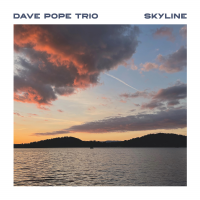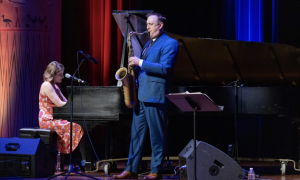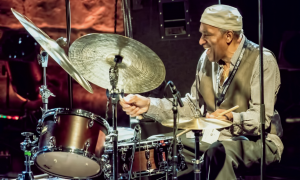Home » Jazz Articles » Catching Up With » Miles Evans: Two-Part Harmony
Miles Evans: Two-Part Harmony
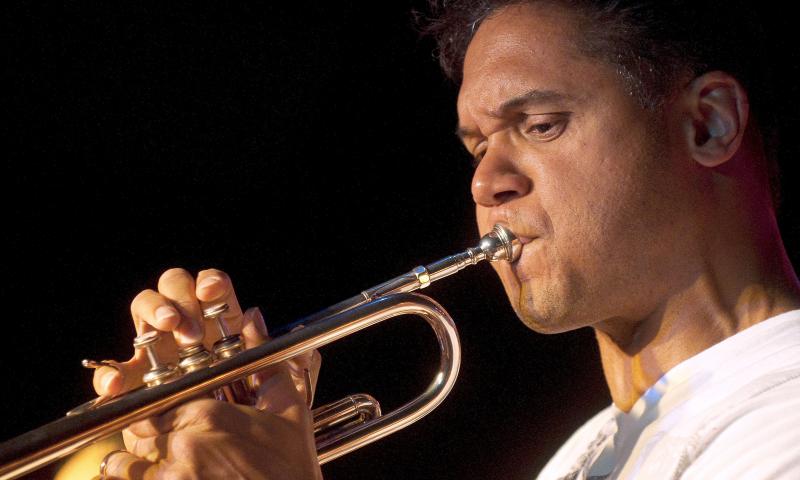
Ravi Coltrane
saxophone, tenorb.1965

Gil Evans
composer / conductor1912 - 1988
Like Ravi, Miles has struggled with coming up under the large shadow of his father, whose recordings with another legend, trumpeter

Miles Davis
trumpet1926 - 1991
As a trumpeter, Miles Evans has forged his own career, collaborating with everyone from drummer

Bob Moses
drumsb.1948

Lew Soloff
trumpet1944 - 2015

Quincy Jones
arranger1933 - 2024

Ray Russell
guitar, electricb.1947
All About Jazz: Your dad would have turned 100 years old in May. Tell me about The Centennial Celebration you had in tribute.
Miles Evans: Well, it was really a blast to do. What originally happened was I had gotten in touch with a promoter and a very well-respected musician who had previously played with Gil. He agreed to perform with The Gil Evans Orchestra for Gil's 100th birthday. We were going to do it at a very large venue but his schedule became too hectic and we had to cancel the international concerts we'd also planned. My brother Noah said, "Hey, let's do a gig in New York," so he and others came up with the Highline Ballroom. We then got together these fantastic musicians who had played with Gil Evans over the years. It was an amazing tribute and we had a lot of fun.
AAJ: Who were the musicians?
ME: They were musicians that had played with Gil in the '60s, '70s and '80s. Very special musicians like [baritone saxophonist/tubaist]

Howard Johnson
tuba1941 - 2021

Jon Faddis
trumpetb.1953

Dave Bargeron
tromboneb.1942

Lew Soloff
trumpet1944 - 2015

Chris Hunter
fluteb.1957

Billy Harper
saxophoneb.1943

Gil Goldstein
piano
Mark Egan
bassb.1951

Bob Stewart
tubab.1945

John Clark
french hornb.1944

Ryo Kawasaki
guitarb.1947
There were other great musicians that didn't actually play with Gil but played with The Gil Evans Orchestra under my direction, like
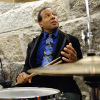
Kenwood Dennard
drums
Oz Noy
guitar
Matthew Garrison
bass, electricb.1970
AAJ: I understand you granted [composer/conductor]

Ryan Truesdell
composer / conductorME: Yes, Ryan did an excellent job researching my father's work and presenting more than one period of his music as well. It resulted in sharing the great Gil Evans' music with more and more people. I prefer to innovate music, not unlike the way Gil and Miles Davis did, so I wanted someone else to do the older periods of my father's music and it turned out to be Ryan; I could tell that he was talented. I felt that the music should be heard because it's unbelievably great—like "Barbara's Song," for example. I had a very strong feeling about Ryan and that's why I picked him to present the music.
AAJ: Will you collaborate with Ryan in the future?
ME: You never know. Maybe we will collaborate.

AAJ: Your dad changed the fabric of jazz. How will you continue that legacy?
ME: It's very difficult. As a kid, I asked my father, "How did you become a sound innovator?" And he said, "Well, I took a little of this, a little of that, a little of this, put it all together in a funnel, and it came out as me." Of course it's not easy to become a great innovator like Gil Evans, Miles Davis, [pianist]

Duke Ellington
piano1899 - 1974

John Coltrane
saxophone1926 - 1967

Charlie Parker
saxophone, alto1920 - 1955

Lester Young
saxophone1909 - 1959

Louis Armstrong
trumpet and vocals1901 - 1971
AAJ: Speaking of magic, what was it like growing up in your musical household?
ME: It was unique, with my father there listening to all kinds of music, whether it was Miles Davis,

Stevie Wonder
vocalsb.1950

Frank Zappa
guitar, electric1940 - 1993
AAJ: Your mother, Anita, told me that your father would sit at the piano for weeks on end just playing a chord. Do you remember that?
ME: Yes I do, and he would practice different voicings. I also remember the music with more chords. It was incredible, the way he came up with those voicings, not having sequencers, emulators and samples around. He had to imagine it all, like what a French horn would sound like on one of the voices or perhaps an oboe, a flute or a bass clarinet on other parts of the chord. What an amazing imagination he had.
 AAJ: Your brother, Noah, told me that he thought all kids traveled the world with their father and became roadies at age seven. What did you think?
AAJ: Your brother, Noah, told me that he thought all kids traveled the world with their father and became roadies at age seven. What did you think?ME: I remember enjoying it and having such a blast. When I was five, turning six, I went to Europe. Six, turning seven—Japan. Then eight, turning nine, in Europe again. What a life lesson. It was so incredible to be there, seeing those cities and hearing those fabulous concerts.
AAJ: Apparently he wrote you into the contract and wouldn't go on tour unless you were written in; is that true?
ME: Yes, for the most part. What an amazing dad, I was so lucky. The band members took us under their wings too, so at times it was like having 18 dads.
AAJ: Tell me more about playing music with your father.
ME: When I was about 13, we would sit in my room and I'd be playing trumpet and he'd be playing the melodica—either jazz or classical. I had started out much later than most kids, as my dad didn't believe in forcing me to play an instrument. He didn't want me to hate it and never play again once I got older. To start too young, is sometimes to end young. He'd either point out the chords or talk about phrasing. Later on he talked about timbre, the overtone series and much more.
AAJ: So, he was like a mentor too?
ME: Without a doubt. Then at age 17, I got my professional start when I went to London with him. He was touring with an all English orchestra and I sat in with them. From then on I continued playing with him and afterwards, with [bassist]

Jaco Pastorius
bass, electric1951 - 1987
AAJ: Did you have an opportunity to know Miles Davis?
ME: Absolutely. I'd go to his place in the '70s, on 77th Street between Riverside and West End, and hang out with him and my father. I took some trumpet lessons with him in the '80s. During one of the lessons, Miles pulled out some music, which was pretty fascinating and difficult, and said (in a gruff voice), "Just play the notes, don't worry about the rhythm." He'd advise me to clap out the rhythm separately, then I'd sing the notes. Afterward, I'd sing the notes with the rhythm. When I went back to the music, I'd really know how to play it. It was a great lesson that made things much easier. It was really cool listening to his point of view.
AAJ: What was his point of view?
ME: It's really hard to sum it up but basically you have to really know where the note is. You have to hear it, whether in your head or out of your head but you have to be sure, in order to nail it. If you don't, you won't be able to put the right pressure on your lips or have the right speed, with air, to produce the note in a really beautiful way. That was an amazing help.
AAJ: Your father had a basement apartment on 55th Street in NewYork, behind a Chinese laundromat. A lot of innovative music was happening there at that time. I want to know more about that; I'd also like to know what's happening in your basement.
ME: My father had that amazing period, when so many talented musicians came to his apartment, like Miles Davis, [saxophonist]

Gerry Mulligan
saxophone, baritone1927 - 1996

George Russell
composer / conductor1923 - 2009
Though it was before my time, I know some of the stories, and what an unbelievable brewing place it was for music. In '49, Birth of the Cool (Capitol, 1956) came to fruition, which gave the world a new sound to music. Gil and Miles continued to create with Miles Ahead (Columbia, 1957), Sketches of Spain (Columbia, 1960), Porgy and Bess (Columbia, 1958), Quiet Nights (Columbia, 1962), and Live at Carnegie Hall (Columbia, 1961). Nothing like that had been done before. Those records are loved, played and performed and are still selling to this day.
And what continues to happen in my basement is what my father talked to me about. I'm listening to a lot of great music whether it's jazz, R&B, classical, funk or pop. I'm mixing that all together and working on coming up with something amazing and innovative.
AAJ: What's coming up on your musical menu?
ME: I'm working on it right now. I'll be flying to Los Angeles and working in the studio, and once it's done you'll see what will be brewing. There'll be [bassist]

Darryl Jones
bassb.1961

Bob Sheppard
saxophone, tenorb.1952

Mitchel Forman
keyboardsb.1956
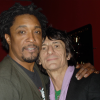 "
data-original-title="" title="">Bernard Fowler , and
"
data-original-title="" title="">Bernard Fowler , and 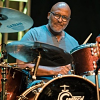
Steve Ferrone
drumsAAJ: What about the future of The Gil Evans Orchestra?
ME: The Gil Evans Orchestra has a bright future, with upcoming concerts in New York and elsewhere. We'll produce and perform great music, continuing the legacy with a fresh innovation. You'll see.
Selected Discography
Ray Russell, Goodbye Svengali (Cuneiform, 2006)
Gil Evans, 75th Birthday Concert (BBC Music, 2001)
Lew Soloff, Rainbow Mountains (32Jazz, 2000)
Gil Evans Orchestra, A Tribute to Gil (Soul Note, 1997)
Bob Moses, Time Stood Still (Grammavision, 1993)
Gil Evans, Live at Sweet Basil, Vols. 1 & 2 (Evidence, 1984)
Photo Credits
Page 1, Miles Evans: Tony Gieske
Page 1, Gil Evans: Courtesy of
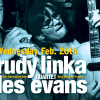 "
data-original-title="" title="">Miles Evans Page 2: Melanie Futorian
"
data-original-title="" title="">Miles Evans Page 2: Melanie Futorian
Tags
Miles Evans
Catching Up With
Melanie Futorian
United States
Ravi Coltrane
Gil Evans
Miles Davis
Bob Moses
Lew Soloff
Quincy Jones
Ray Russell
Howard Johnson
Jon Faddis
Dave Bargeron
Chris Hunter
billy harper
Gil Goldstein
Mark Egan
Bob Stewart
John Clark
Ryo Kawasaki
Kenwood Dennard
Oz Noy
Matthew Garrison
Ryan Truesdell
duke ellington
John Coltrane
Charlie Parker
Lester Young
Louis Armstrong
Stevie Wonder
Frank Zappa
Jaco Pastorius
Gerry Mulligan
George Russell
Darryl Jones
Bob Sheppard
Mitchel Forman
Bernard Fowler
Steve Ferrone
Tom Petty
Comments
PREVIOUS / NEXT
Support All About Jazz
 All About Jazz has been a pillar of jazz since 1995, championing it as an art form and, more importantly, supporting the musicians who make it. Our enduring commitment has made "AAJ" one of the most culturally important websites of its kind, read by hundreds of thousands of fans, musicians and industry figures every month.
All About Jazz has been a pillar of jazz since 1995, championing it as an art form and, more importantly, supporting the musicians who make it. Our enduring commitment has made "AAJ" one of the most culturally important websites of its kind, read by hundreds of thousands of fans, musicians and industry figures every month.



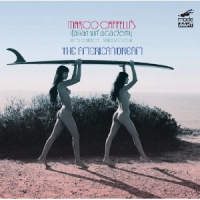




 Buy Now
Buy Now

